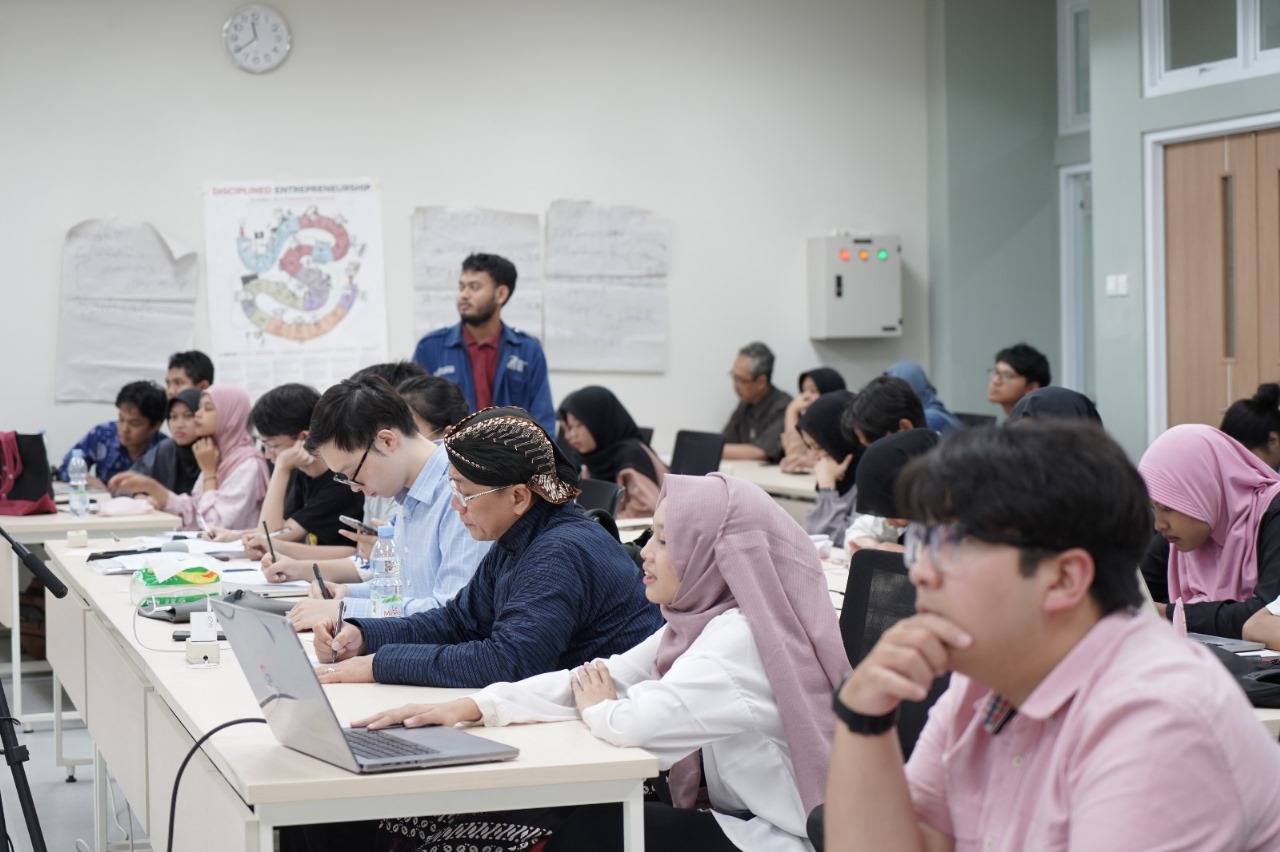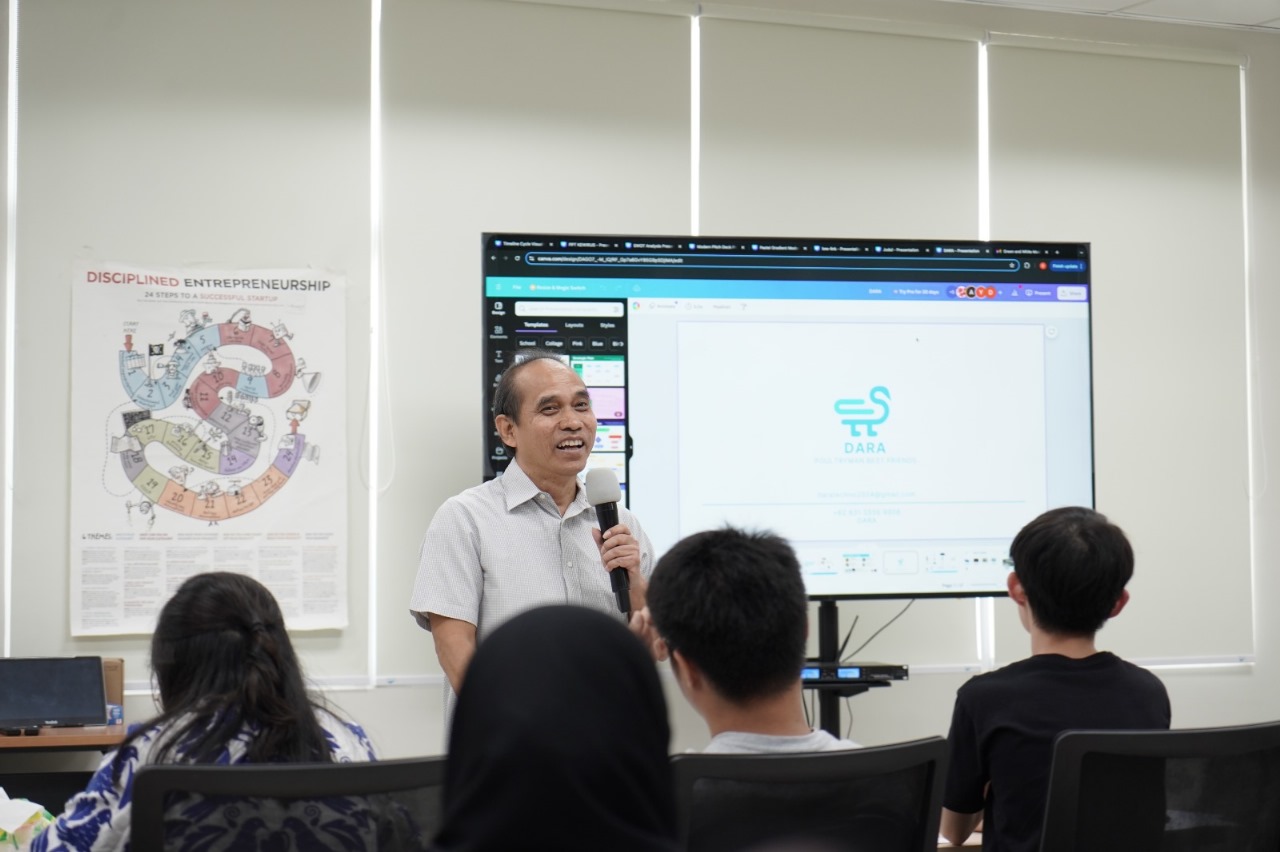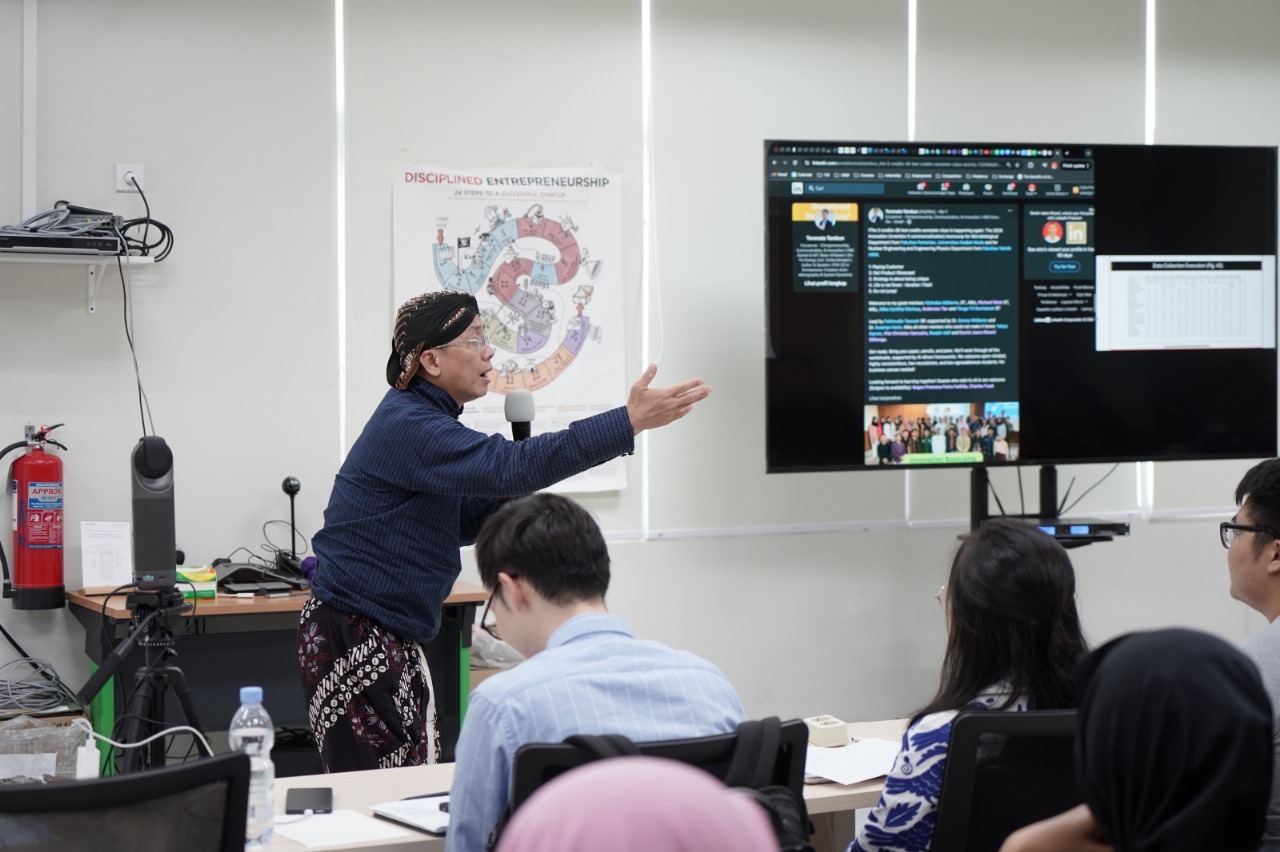
The Faculty of Agriculture Universitas Gadjah Mada (Faperta UGM), held an Innovation Entrepreneurship Bootcamp from 23-27 August 2024. This program was part of the Microbiology Entrepreneurship Course, coordinated by Ir. Donny Widianto, Ph.D., alongside lecturers Toronata Tambun and Nur Akbar Arofatullah, S.P., M.Biotech., Ph.D. Designed as a project-based course, the bootcamp provided students with insights into innovation-driven entrepreneurship.

The bootcamp aimed to immerse students in a fire-hose journey using the 24 Disciplined Entrepreneurship Framework. The five-day event kicked off with the concept of paying customer or “who will pay.” Unlike typical startup trends, this framework emphasizes five foundational doctrines, include: 1) Avoid product obsession, 2) Focus on paying customers (not just markets or segments), 3) Emphasize iteration, 4) Strategy revolves around being unique (uniqueness not limited to the product), and 5) View the customer’s perspective holistically.
From the very first day, 34 students were divided into teams of 3–4 members and began the ideation phase (Step 0). Ideas emerged from paying customers who recognized a problem or from founders who possessed strong sense-making skills, starting with technology as an initial iteration. Teams identified 14 potential paying customers, assessed by three criteria, including 1) Same sales process, 2) Same solution, and 3) Same word of mouth. Teams then narrowed these down to a single “beachhead,” defining end-users and estimating a market target of USD 2 million.
The second module, “Solution,” spanned the second and third days, focusing on integrating identified problems with tailored solutions. Activities included mapping the full life cycle use case, iterating high-level specifications, defining current and possible future states, determining value gaps, and positioning competitors while identifying each team’s unique offerings.
Mentorship played a crucial role, with mentors guiding students throughout and beyond the bootcamp. Among the mentors were Richard Mote, S.T. (a graduate student at Shanghai Jiaotong University and an agriculture startup founder); Nicholas Sidharta, S.T. (UGM Fisheries graduate student and founder of a fisheries startup); Charles Fuad, MD (Cambridge University); and several others from institutions like ITB and UGM, all of whom had experience with Innovation Bootcamps facilitated by Toronata Tambun.

The event culminated in a three-minute English pitch. Students presented their problem statements, proposed solutions, and team strengths. Course coordinators Toronata Tambun and Ir. Donny Widianto, Ph.D., emphasized the goal of creating resilient, anti-fragile generations rather than fostering superficial startup trends.
“We hope this bootcamp equips students with robust mentalities, the ability to withstand life’s shocks, and the courage to become entrepreneurs addressing agricultural challenges in Indonesia,” said Donny.
By organizing the Innovation Entrepreneurship Bootcamp, the Faculty of Agriculture at UGM reaffirms its commitment to providing quality education and supporting the achievement of SDG 4: Quality Education, SDG 10: Reduced Inequality, and SDG 17: Partnerships for the Goals.
Writer: Severinus Adrian Maitri, Ghorizatu Shofra
Editor: Desi Utami
